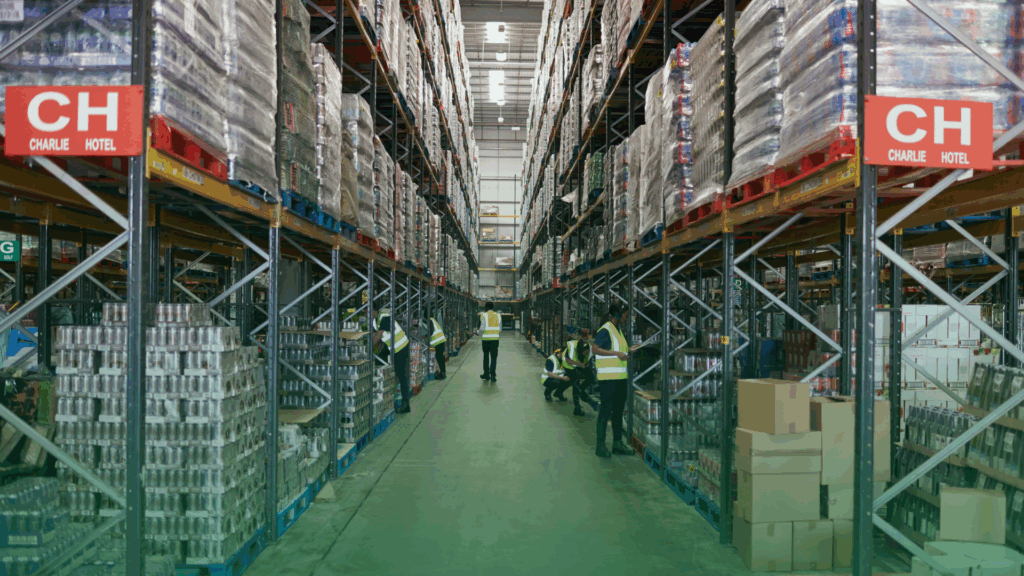Supplier Evaluation: 5 Criteria to Analyze Before Hiring a Service
Published on
13/01/2023
| Updated on
18/11/2025
Topics Covered
Supplier evaluation is the process of prior analysis regarding criteria established by the company with the aim of ensuring quality, reliability, and efficiency in the supply chain.
In an increasingly competitive market, companies cannot rely solely on the quality of their products or services to stand out. Efficiency and the reliability of the supply chain have become strategic factors for business success.
In this scenario, supplier evaluation emerges as a necessary practice, allowing organizations to identify reliable partners, reduce legal and financial risks while optimizing processes.
Based on this, it is important to know that evaluating suppliers goes beyond simply checking prices or delivery times. It is a more structured process that considers criteria such as quality, regulatory compliance, sustainability, operational capacity, ethical alignment, and background and history verification.
Continue reading and see how to evaluate suppliers according to 5 main criteria!

The 5 Criteria for Supplier Evaluation
1. Supplier Financial Health
Using indicators related to the supplier’s financial health is indispensable. That is, analyzing the supplier company’s credit with the aim of identifying a possible record of debts and payment delays.
This is because a company that has financial problems will most likely deliver a service without the quality necessary for your company. Furthermore, being associated with a supplier going through a crisis can cause an image crisis for your institution, that is, a problem in credibility and reputation.
Thus, performing a financial check on the supplier should be a regular practice in the company’s approval process.
2. The Company’s Relationship with the Market
Understand how the supplier company behaves in the market. That is, know how it served and behaved in partnerships prior to the one you are seeking to build with it, through a background check.
This analysis allows you to discover that the partnership will be good and that the company you wish to partner with will meet your service expectations, fulfilling demands adequately and within deadlines and quality standards.
3. Supplier Compliance
Supplier compliance refers to adherence to legal standards, sector regulations, and the internal policies of the contracting company.
This criterion assesses whether the supplier operates according to ethical, environmental, labor, and safety standards, ensuring that their practices do not represent reputational or legal risks to the company.
In addition, compliance involves the supplier’s ability to present adequate documentation, such as certifications, licenses, and audit reports, and to adapt quickly to regulatory changes. Compliant suppliers contribute to a secure, reliable, and sustainable supply chain.
4. History of Legal Proceedings
Checking the legal history of suppliers is extremely important for companies that wish to mitigate risks and ensure greater security in their commercial relationships. With this type of information, your organization has access to data that can reveal patterns of conduct, such as recurrent involvement in labor, tax, civil, or environmental lawsuits.
This care not only helps to identify suppliers that may represent financial or reputational risks but also ensures greater transparency and trust in the supply chain.
Furthermore, understanding the legal history makes it possible to evaluate whether the partner adopts responsible practices and is in compliance with legislation, avoiding surprises that could compromise contracts, operations, or even the company’s image in the market.
Essential in a scenario where compliance and governance are increasingly valued, consulting the history of legal proceedings becomes a strategic step for safer and more sustainable hiring decisions.
5. Relationships with Adverse Media or Watchlists
Checking if suppliers have relationships with adverse media or appear on watchlists (restricted lists) is a fundamental measure to protect the company from reputational and legal risks.
Negative news, journalistic investigations, and exposure in media outlets can indicate dubious practices, involvement in fraud, corruption, or poor labor conditions.
Likewise, national and international watchlists such as sanctions, blocks, and regulatory body records, reveal if the company or its directors are barred from operating in certain markets or segments.
Ignoring this type of check can expose the organization to image damage, loss of credibility with customers and partners, in addition to possible legal implications.
On the other hand, by monitoring this information preventively, the company reinforces its commitment to ethics, compliance, and sustainability, making safer hiring decisions aligned with the best corporate governance practices.
Example of Supplier Evaluation
Imagine you need to hire a plastic supplier to produce your company’s bottles. During the evaluation, the registration query shows that the company is active, but there are records of outstanding tax debts and two significant labor lawsuits in progress.
Read more about How to check a company’s registration status (CNPJ)
When checking watchlists, the company appears linked to a case of irregular supply in another state, which raises concerns about compliance. Additionally, the financial history points to a high debt ratio and delays in previous payments, signaling instability risk.
Operationally, the supplier has production capacity, but there are records of recurring delays in deliveries and quality problems reported by other customers. In this scenario, the evaluation concludes that the supplier could represent a medium to high risk.
See the case of the Aurora brand which closed a deal with a supplier that enslaved workers. Upon discovering this situation, the brand suffered a loss of more than 7 million and had its products banned in several markets.
Understand What Know Your Supplier (KYS) Is
KYS is a due diligence practice aimed at suppliers, which allows companies to assess risks before closing partnerships. Through Know Your Supplier, aspects such as registration status, legal history, market reputation, financial health, and regulatory compliance are analyzed. The goal is to ensure that suppliers are reliable, minimizing risks of fraud, default, or compliance problems.
Background Check and Supplier Evaluation
Through a background check solution for companies, you can verify the entire history of the analyzed supplier in a few minutes and in an automated way, clearing up all information regarding the criteria presented with real-time data and automatic risk parameterization.
For this, we use more than 200 sources such as criminal records checks, the presence of the partner’s name on watchlists or adverse media, and analysis of the company’s financial and procedural history. With this, you reduce legal and reputational risks that impact your company’s cash flow.
Interested and want to know more? Access our website and stay up to date with our solutions!
Frequently Asked Questions about Supplier Evaluation
1. What criteria are considered in the evaluation?
Aspects such as registration status, legal history, presence on watchlists, debts, financial health, operational capacity, product or service quality, and market reputation are analyzed.
2. What are watchlists and why consult them?
Watchlists include companies or people involved in fraud, irregularities, or legal sanctions. Consulting them prevents partnerships with suppliers that may bring risk to the company.
3. How often should the evaluation be done?
Ideally, before hiring and periodically (annually or semi-annually) to monitor changes in the supplier’s profile or risk.
4. How to classify supplier risk?
Risk can be classified as low, medium, or high, based on a combination of factors such as legal issues, debts, delivery history, and regulatory compliance, according to the rules your company establishes.
Share:

Maria Eduarda
Especialista em Produção de Conteúdo sobre Gestão de Riscos na BGC Brasil e estudante de Comunicação Social em Universidade Estadual do Rio de Janeiro.
Related posts
Free materials
Technology in HR
How to automate processes and make them faster and safer
E-book
Background Check
7 ways to apply it in your company
E-book
10 pillars of a
Compliance Program
E-book
Best practices guide for
Money Laundering Prevention (MLP)
E-book
The Future of HR
7 Global Trends You Should Adopt as Soon as Possible
E-book
